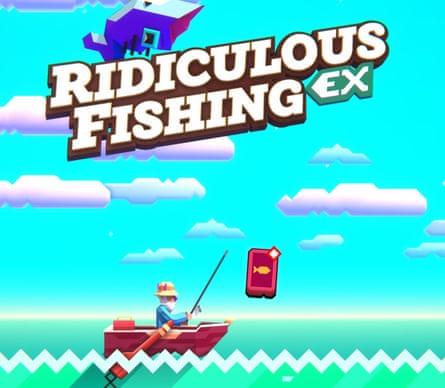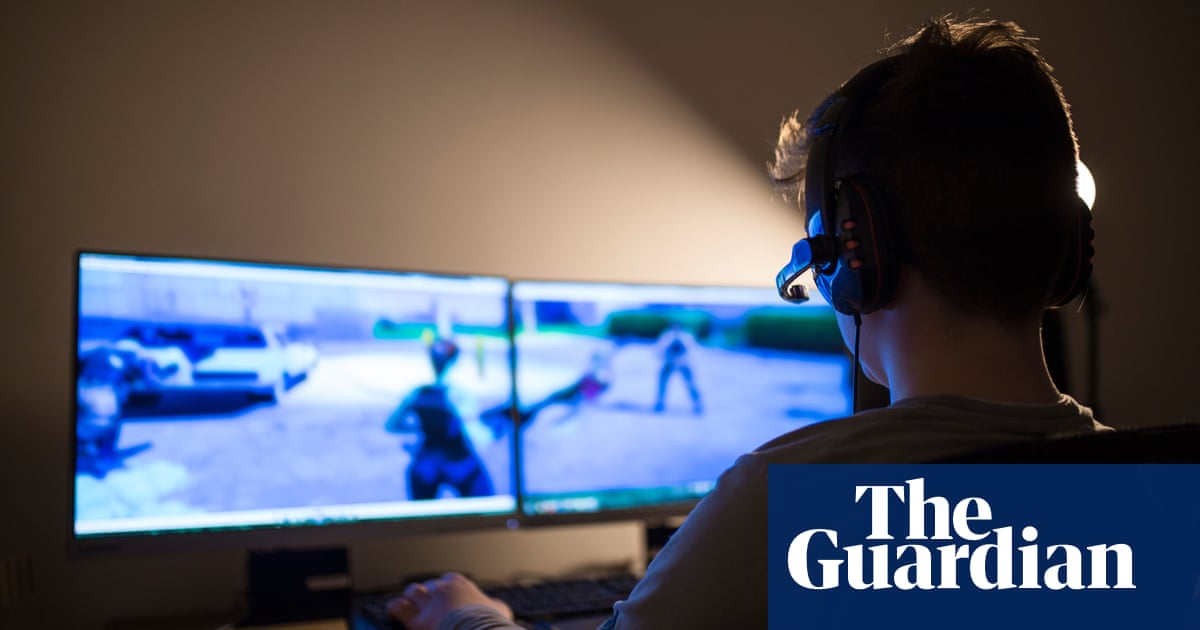
Video game addiction is real – but parents shouldn’t worry too much
Gaming is a huge force for good, but developers using gambling industry tactics are causing nothing but harm
Don’t get Pushing Buttons delivered to your inbox? Sign up here
Over the weekend, the Guardian published a trio of stories about video game addiction. One was about the 850 people referred to an NHS treatment clinic in the last three years (of whom 227 were under 18). Another was on developers’ use of tactics from the gambling industry to keep people spending on games. The third was by the director of the National Centre for Gaming Disorders, calling for industry regulation to better protect young people.
These stories concern a problem that is certainly real, especially so for people affected by compulsive gaming behaviour, whose stories are no less affecting than those of gambling addicts. They also highlight a need for mechanisms to help struggling people. For adults, it is possible to exclude yourself from casinos and lock yourself out of online gambling accounts, should you request it; no such possibility exists if you’re finding yourself dropping thousands on a free-to-play mobile game instead. For under-18s, the paucity of help available to families and young people struggling with social isolation or destructive behaviour at home, of which compulsive gaming can be a part, is one fact of a youth mental health crisis across the UK, where 250,000 young people are going without help.
As always with reports about video game addiction, the numbers and stories are alarming. It is important to keep in mind, however, that more than 80% of all under-18s in the UK play video games regularly – which is more than 11 million kids. In that context, 227 referrals since 2020 does not seem like such an alarming number. The World Health Organization, which classified video game addiction as a disorder in 2018, estimated that problematic gaming affects fewer than 1% of players (some studies in certain countries found prevalence of up to 3%). There is also ongoing debate among researchers and those who treat compulsive gaming that it may be a manifestation of underlying mental health issues, rather than an independent issue in itself – in other words, games aren’t causing addictive or self-isolating behaviour, but are an outlet for it.
None of this, however, absolves video game developers from behaving responsibly – and some of them don’t, as we well know. Free-to-play mobile and “casual” game giants such as Zynga have long been unscrupulous in the way that they treat their players, and it is not the only company that specifically designs games to be addictive. Since the dawn of this kind of gaming, in the early days of the App Store, the idea has always been to squeeze the players who’ll pay for all they are worth while accepting that somewhere about 90% of your player base will never spend anything. It is, and always has been, an unethical business model – and yet it has become so normalised that, these days, finding a mobile game that isn’t either full of horrible ads or geared towards pestering you for money is quite difficult.

These companies aren’t shy about their tactics. They have actively hired people from the gambling industry to maximise the gains they make from susceptible players. They’ve boasted about them for years at game developer conferences such as San Francisco’s GDC – as this write-up from GamesIndustry.biz, which I’ve cited before in this newsletter, evidences. “We’ve done so much experimenting at Zynga with VIP. We know what’s the frequency of contact. We know what call types work. We know what times to call. We know exactly who to call and when. We know who has a higher propensity to be more susceptible to our call,” said a former Zynga former vice-president Gemma Doyle, who used to work at gambling company Sportingbet. As with problem gamblers, there is no way for these companies to know if these gamers can actually afford the money they’re spending. One gets the impression that they don’t really care.
Meanwhile, there’s the debate over loot boxes, also mentioned in the weekend’s reporting, which has been rolling on for years. Should it really be possible to spend thousands on Fifa player packs? Should randomised rewards, which have proven links to problematic gambling, be a part of gaming at all? Can the industry be trusted to regulate itself on loot boxes, as then-culture secretary Nadine Dorries concluded last year? I don’t believe that the immense profits these mechanisms sometimes generate justify the harm they can do to a minority of players. Even if loot boxes don’t literally turn children into problem gamblers, they’re just tacky.
The problem, as ever, comes when we conflate these actively exploitative monetisation practices with video games as a whole. As has been proven time and time again, games have an overwhelmingly positive influence on millions of people’s lives. And though free-to-play is the dominant model in gaming globally, thanks to its prevalence in mobile markets, it is still the exception in console and PC gaming. It is my firm opinion that video game developers should want nothing whatsoever to do with the kinds of gambling-adjacent monetisation tactics that lead to this alarming reporting. If getting rid of loot boxes and imposing strict spending limits on free-to-play games means that some enormous companies make significantly less money, so be it.
What to play

If you’ve got an iThing and an Apple Arcade subscription, you simply must download Ridiculous Fishing EX and start hauling fish out of the ocean before blasting them with a shotgun. The original game became a redemption story in 2013, when it became a huge App Store success despite being cloned years earlier by unscrupulous mobile game developers. This version has a stylish angular 3D look, and a surprising amount of effort has been expended on a fishing-themed TikTok satire that you can look at on your in-game phone. A creative and effortlessly entertaining mobile game to cleanse the memory of the exploitative horrors we were talking about earlier.
Available on: iPhone, iPad with an Apple Arcade subscription
Approximate playtime: 2-4-plus hours
What to read

-
There was a flood of gaming news while I was on holiday, so here’s a quickfire catch-up: Hitman makers IO Interactive have opened a new studio in Brighton (they’re making a James Bond game); Sonic co-creator Yuji Naka has been handed a suspended prison sentence and a $1.2m fine for insider trading (Sonic pictured above); Major Nelson, one of Xbox’s most familiar faces for the past 20-plus years, is leaving Microsoft; and the EU wants handheld consoles to have replaceable batteries from 2027.
-
Regulators in the US have failed in their bid to delay Microsoft’s acquisition of Activision Blizzard, and the mega-merger is now going ahead – pending approval in the UK, for which Microsoft is appealing. We got an entertaining trial out of all this, which shed a little light on some of the secrets of the modern games business (intentionally or otherwise) and exposed its sheer complexity. (Judge Jacqueline Scott Corley did an admirable job absorbing reams of information about this difficult-to-understand industry.) After the ruling, Microsoft and Sony announced an agreement to guarantee Call of Duty on PlayStation for an unspecified duration.
-
IGN reports on yet another unforseen, distasteful use of AI, as modders of the decade-old RPG Skyrim have been using it to create deepfake pornography featuring the game’s voice actors (without their consent).
What to click
Bluey: The Videogame in the works, according to evidence dug up by online sleuths
after newsletter promotion
40 years of the Nintendo Famicom – the console that changed the games industry
Viewfinder review – the magic of stepping into a picture
Bomb Rush Cyberfunk: streetwise graffiti gangs paint the city wild
Question Block

A question this week from reader Dale:
“Most RPGs seem to be based in a fantasy medieval setting, or in space. Can you recommend any set in a different time or place? Is there a time or place you’d like to see an RPG set that hasn’t been done before?”
Back when I started out in this job and asked game developers about their cultural influences, 80% of them would say either Lord of the Rings or Star Wars. And you’re right that many games, especially in the role-playing genre, seem unduly indebted to one or the other. It makes for a limited palette – though if Final Fantasy XVI is anything to go by, you could at least add Game of Thrones to that list these days.
Cyberpunk 2077, which is genuinely good now, is full of cyberpunk tropes rather than medieval fantasy or space; Fallout 3 and 4 are post-apocalyptic instead (or, for the discerning player, Fallout: New Vegas is the best one … don’t @ me). Japanese RPGs such as Ni no Kuni and Dragon Quest are still fantasy, for sure, but more colourful and less medieval. Disco Elysium is about the only RPG I can think of that’s set in a sort-of-modern-day allegorical town, the rundown magical-realist district of Martinaise. Persona 5 (pictured above) is set in modern-day Tokyo and is all the cooler for it (see also: the Like a Dragon series).
I have always wanted to play a role-playing game set in a modern-day city – think Grand Theft Auto, but with significantly less violence. In my imagination it’s a vampire story, and you get to decide whether you’re one of ’em, or hunting ’em.
If you’ve got a question for Question Block – or anything else to say about the newsletter – hit reply or email us on pushingbuttons@theguardian.com

